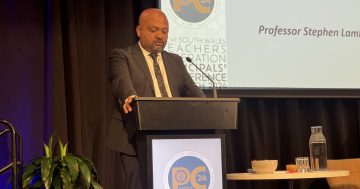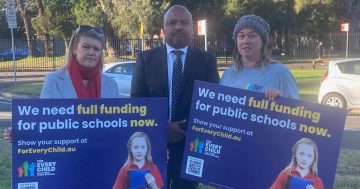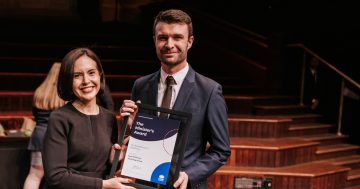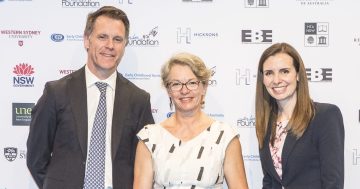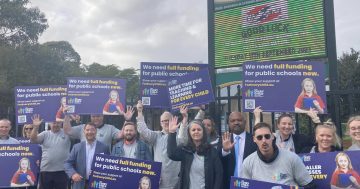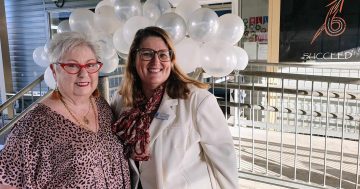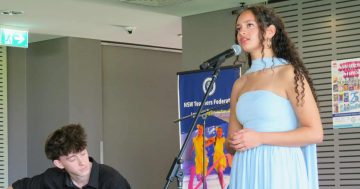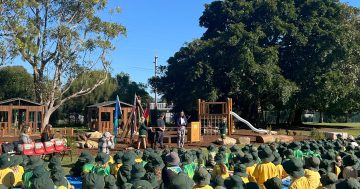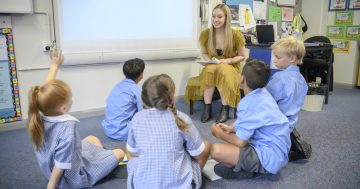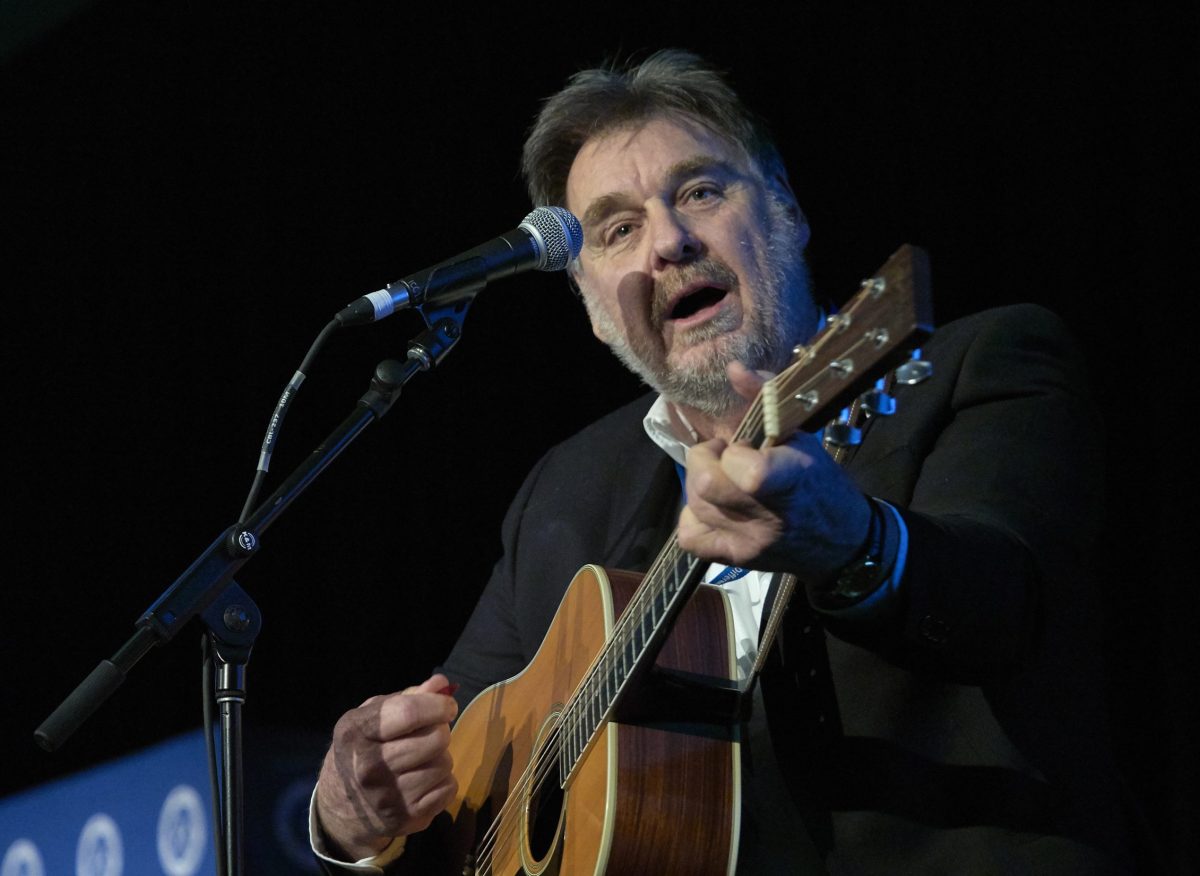
Maurie Mulheron, former Keira High principal and NSW Teachers Federation president. Photo: Supplied.
Legend has it that musician and former NSW Teachers Federation president, Maurie Mulheron, once sang through a heart attack at a Wollongong Folk Club concert.
“Yeah, it’s true,” says Maurie with a chuckle. “I did manage to finish my spot but two days later I underwent emergency cardiac surgery on a clogged artery.”
That dedication to fulfill his obligations to the best of his ability no matter what, runs through his entire career as a teacher, school principal and union boss.
Maurie, who lives in Austinmer, grew up in Punchbowl with two brothers and working-class politically active parents.
“Mum and Dad grew up through the Depression and had to leave school early but they had an incredible thirst for knowledge, with bookcases in every room of the house full of books across a range of topics,” says Maurie.
“And the notion we could make the world a better place was instilled into us from an early age, which is one of the reasons I became a teacher.”
Now 68 and four years into retirement, Maurie looks back on some amazing classroom experiences, and sadly, some unfulfilled dreams of equitable funding in public education.
“The media rattle on about a list of problems in our schools they think are holding kids back, but it essentially comes down to a huge disparity of funding between public and private education,” he says.
He believes Australia squandered a golden opportunity to fix the problem when it failed to properly carry out the 2011 Gonski report’s recommendation that urgent action was needed to remedy the funding shortfall.
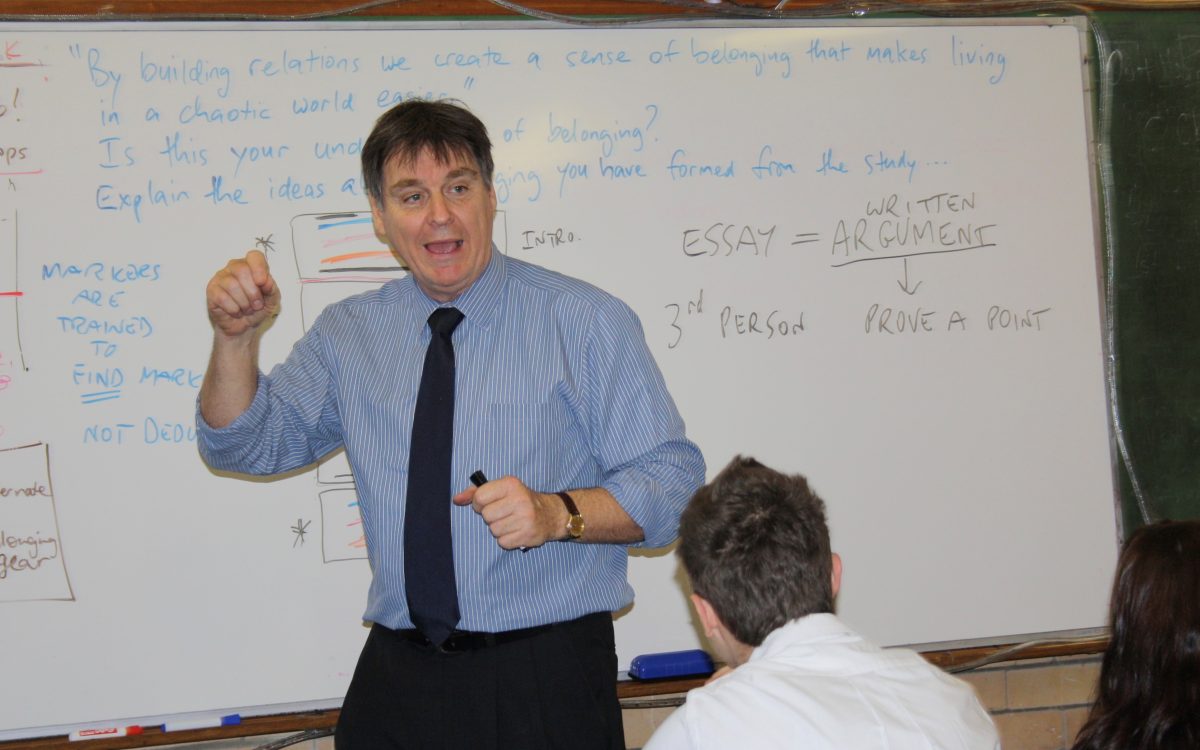
Maurie in his teaching days at Keira High School. Photo: Supplied.
“Teachers were elated when the Rudd government set a six-year time-frame for the catch-up, but it was devastating when after four years it was abandoned with a change of government.
“By then we had only received a third of the allocated funding needed to bring us up to just the minimum SRS (schooling resource standard).
“It seems to me politicians just don’t see public education as the main game, but more as a schooling system of last resort.
“The losers are the kids who often miss out on trained teachers with, for example, physical education teachers having to take science classes and special-needs kids who miss out on services that could help with numeracy and literacy or even speech pathology,” he says.
A need to plug holes was constantly repeated throughout his career due to the inequitable funding.
Maurie’s first post after graduating as an English teacher was in what was then one of the poorest postcodes in Australia, just west of Sydney.
“I remember asking the kids – all young teens – to write a few words on how they felt when they saw the Sydney Harbour Bridge for the first time,” he recalls.
“I sensed a reluctance to engage, and soon discovered only a handful of students had ever seen the Harbour Bridge, let alone had any other cultural experiences in the city on their doorstep.”
Together with the music teacher, he wrote three musicals with a cast of 150 kids who worked together on nights and weekends for months for no extra pay to pull together the shows.
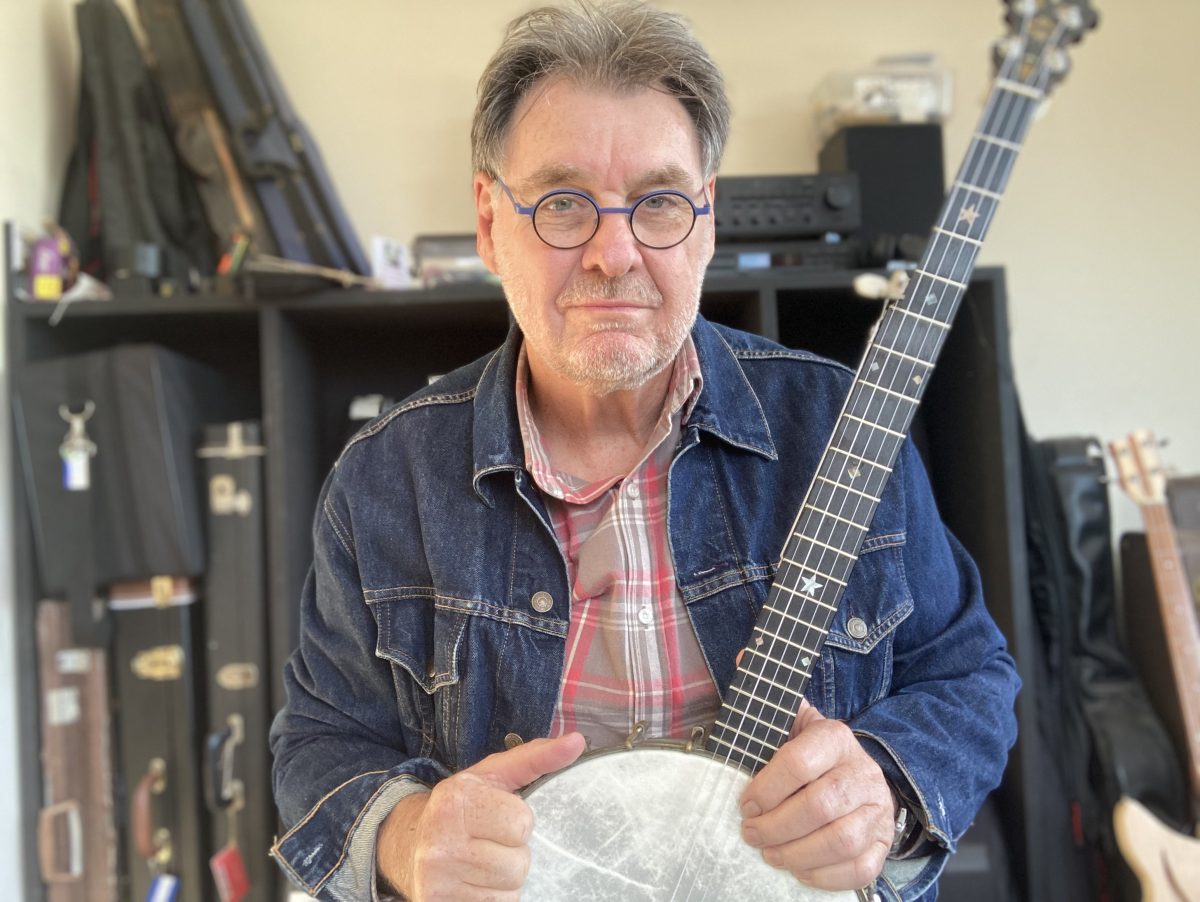
The former teacher is working to improve music education in primary schools. Photo: Supplied.
“They weren’t high-brow musicals the kids wouldn’t relate to – they were fun and engaging and it was a huge success with packed audiences of proud families and friends,” says Maurie.
When asked if private schools have any place in our education system, his answer was a simple “no”.
“They essentially exist to exclude, yet they still get capital funding from the Federal Government every year to build dive pools, performance theatres and orchestra pits while the public school down the road may not have even a school hall,” he says.
Maurie’s hope is that Anthony Albanese will get public education back on track, but he’s not holding his breath.
His last gig in the education system was a decade ago as Keira High School principal before he was elected to the position of NSW Teachers Federation president.
The equitable funding warhorse retired in 2020, but he is still active behind the scenes when it comes to improving public education.
“I’m now working on a project with Albert Productions and the philanthropic arm of the Tony Foundation to improve music education in primary schools,” says Maurie.
“Primary school teachers in training get only about eight hours of music tuition, and many we’ve spoken to say they feel [ill-equipped].
“We want this to change so all children can experience quality music education with the opportunity to play any instrument of their choice.”
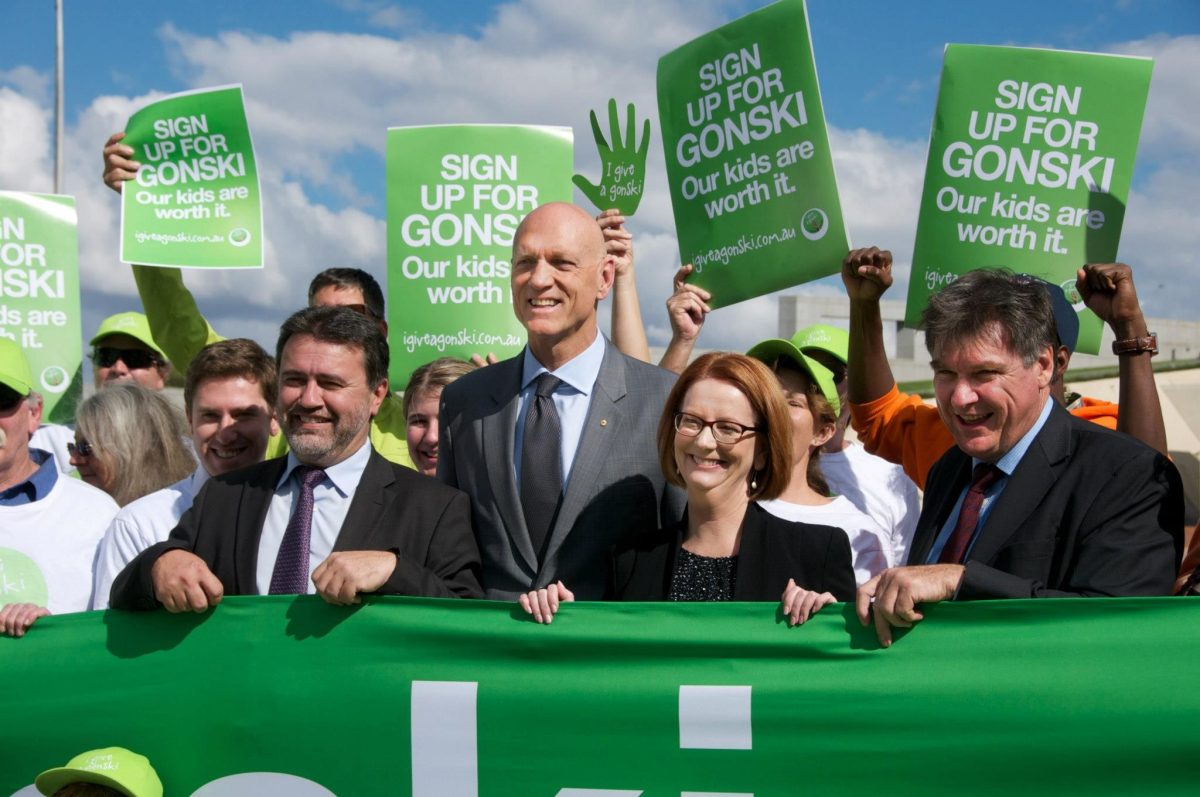
Maurie (far right) during the Gonski campaign in Canberra with Angelo Gavrielatos, Peter Garrett and Julia Gillard. Photo: Supplied.









